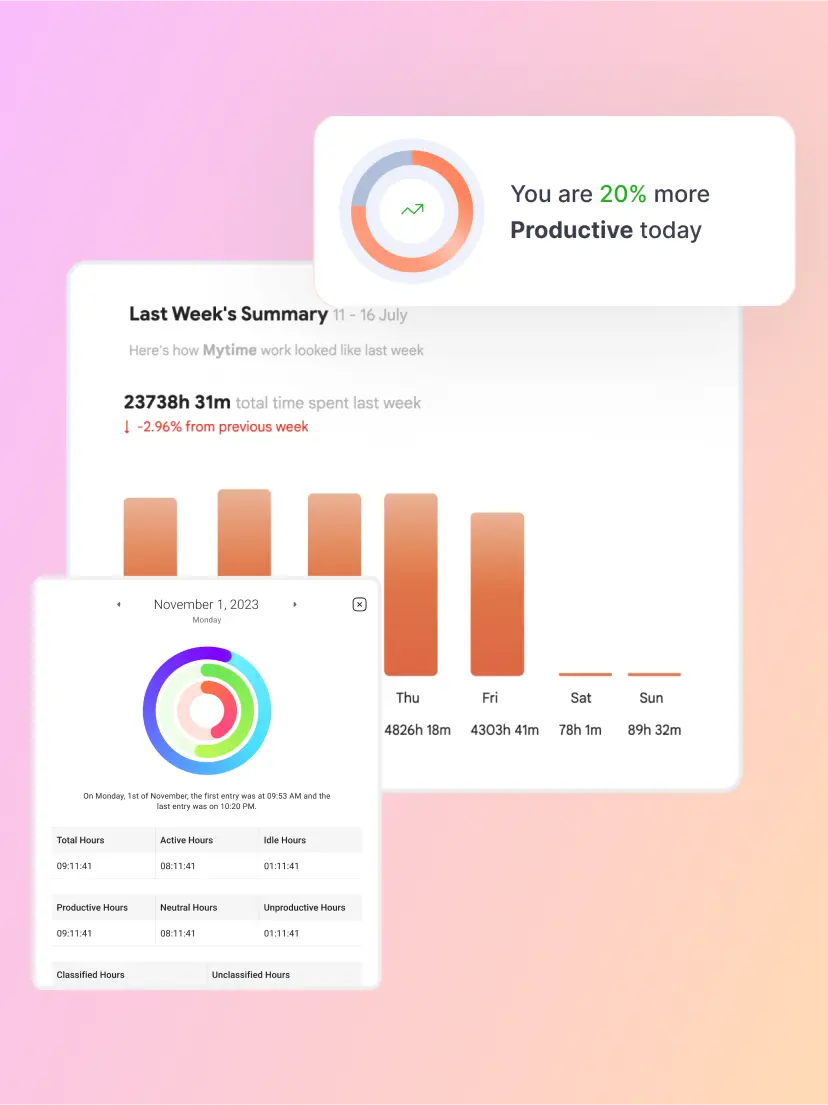How To Start A BPO In An All-In-One Guide

Starting a business is not an easy task. It’s full of hard work, anticipation, and more strategies.
It can feel like a battle, starting with navigating the maze of registering your business, getting permissions, hiring, and marketing.
But don’t worry! If you want to know how to start a BPO business,.
We’re here to make your BPO business have a smooth start.
Why not start with the basics of the BPO industry now?
What is Business Process Outsourcing (BPO)?
Business process outsourcing (BPO) is a method of providing services through a third-party partner. The concept of refers to the practice of organizations hiring other companies to perform specific tasks or processes for themselves.
Other companies assign one or more IT-intensive tasks to BPO Tech, who then takes ownership, maintains, and administers the chosen task per specific and quantifiable standards.
BPOs support other businesses in achieving their goals.
Companies of all sizes and stages can benefit from BPO.
There is a big pool of potential customers for BPO providers. They might specialize in specific tasks or procedures, cater to a particular industry, or support companies in achieving various goals.
Today, starting a BPO is an excellent means of growing a company at affordable rates
Types: BPO offerings are divided into;
- Horizontal BPOs (those that can be applied across several sectors)
- Vertical BPO offerings (those that need unique industry vertical process knowledge).
Services offered by BPO business
- Customer Service Support
- Tech-support service
- Tele-marketing
- IT help desk
- Insurance Process
- Data entry
- Processing Data
- Conversion of Data
- Bookkeeping
- Accounting
- Form processing
- Online survey
Also read: Top BPO companies in the world
Why do Companies Outsource?
Multiple factors influence a company’s decision to outsource. But the main influential factors include,
- Businesses utilize outsourcing to reduce labour expenses, such as staff salaries, overhead, and expenditures for technology, equipment, and facilities.
- Businesses also employ outsourcing to focus on the essential components of their operations while delegating the less critical tasks to outside groups.
For example, an established company might want to reduce complexity and improve flexibility, or a startup might have limited budgets for hiring in-house employees.
What’s in it for A BPO vendor?
As a BPO vendor, the possibilities are endless and vast. Outsourcing services are becoming increasingly important as businesses become more globalized.
- Specialization and Expertise: In the market, companies seek plenty of services. As a BPO vendor, you can choose your specialization in specific functions or a range of services.
Whether it’s information technology (IT), customer service, data entry, or other business processes, BPOs can bring expertise and efficiency.
- Access to a global talent pool: BPO companies find talent across various geographies, ensuring access to diverse skills. This global reach enables efficient front- and back-office operations.
- Efficiency and streamlining: BPO vendors provide insights and advice on improving processes. They can streamline operations, enhance effectiveness, and drive efficiency and profitability in specific business functions.
- Business Expansion: BPO vendors can expand their business reach globally, both onshore and offshore. They can offer their expertise to a wider client base according to their needs.
- Revenue Potential: BPO has great revenue-generating potential from providing essential services to other businesses.
Guess, now you are convinced!!
Why not now focus on how to start a BPO? Let’s delve in.
Step By Step
Give your wondering a break from how to start a BPO.
Follow these 5 tricks to start your own Business Process Outsourcing company.
1. Determine and develop your business plan
The first step is the basics.
Begin by creating a comprehensive business plan with SWOT. Determine your niche and core strengths, such as the BPO industry and clientele base. Including the type of BPO services you intend to offer, horizontal or vertical.
Plan out the strategies and do your market research and analysis. Consider all the aspects like customer service support, tech support, digital marketing, data entry, and more.
Besides all these, your business plan should also include:
- Business name (use a unique name)
- Business Summary
- Managerial outline
- Services to offer
- Mission statement
- Vision statement
- Job roles and responsibilities (e.g., CEO, HR manager, business development manager, etc.)
Note: Research and compile a comprehensive plan. To succeed in your chosen niche, you must analyze the intricacies of the market and keep a close eye on your competitors.
Do the Paperwork
To avoid complications in the legal context of establishing a new business, it is imperative to comprehend the paperwork done promptly.
So, start the paper once you are all set with the plan.
But what exactly will you need?
- Company Registration: Register your BPO as a private limited company or another suitable legal entity.
- PAN (Permanent Account Number): Obtain a PAN for tax purposes.
- TAN (Tax Deduction and Collection Account Number): Required for tax deduction at source.
- Digital Signature Certificate (DSC): necessary for online filing.
- Memorandum of Association (MOA) and Articles of Association (AOA): legal documents defining the company’s structure and operations.
- Board of Resolution or Power of Attorney: Authorizing the authorized signatory.
Specifically, you must register your company in India under the Companies Act of 2013. This law governs the obligations and business practices of companies within the nation. Register with the National Association of Software and Services Companies (NASSCOM).
Do not forget to apply for all the mandatory registrations:
- VAT Registration: Obtain Value Added Tax (VAT) registration.
- GST Registration: Register for the Goods and Services Tax (GST).
- OSP License (Other Service Provider): Required for providing services like call centres, tele-banking, telemedicine, etc.
- Shop Establishment Licenses: These are necessary for setting up your office space.
- DSC (Digital Signature Certificate): Used for online filings.
- DIN (Director Identification Number): Required for directors.
Others include:
- Passport-size pictures of directors.
- Copy of PAN Card and Aadhaar Card/Voter identification card of directors.
- Electricity or water bill for the business place.
- Property papers (if owned property) or rent agreement (if rented property)
Note: Learn all the beneficial schemes. Many governments provide schemes for new and existing businesses. It would help if you also availed yourself of some beneficial schemes to start BPO businesses, especially in developing countries.
Invest in the necessary equipment
So you’re ready to launch your BPO! While the basics, like reliable phones, computers, and the internet, are crucial, equipping your team for success goes beyond hardware. You would require;
- Communication tool
- Productivity and time tracking tool
Why??
- Communication tool: Whether managing remote teams or collaborating with clients, the right communication tools can make all the difference.
To maintain the efficiency of your projects, you’ll require a set of reliable communication tools. You can easily ping your colleague for a project, set up a call, or use a group chat to receive updates and project information while keeping everyone informed.
Thanks to technology! Teams can better coordinate these channels and exchange files and updates.
Here are some key options to consider while choosing the right communication tool:
Messaging Tools:
- Fleep & Slack
- Skype
- Microsoft Teams
- Discord
Video Conferencing Tools:
- Zoom & Skype
- Google Meet
- Whereby
- Productivity and time tracking: In the world of BPO, efficiency and client satisfaction are paramount, and so performance-tracking tools play a pivotal role. Most businesses use them to:
- Find out how engaged their workers are at work.
- Manage projects
- Analyze whether a person is using idle time for work hours.
- Keep track of the time it takes to finish jobs.
- Bill clients and keep precise records of the time spent on tasks.
Flowace serves as the compass, guiding teams toward operational excellence.
Let’s explore the features of Flowace, a productivity app designed to enhance team performance and streamline work processes.
Flowace provides a simplified remote employee monitoring solution. It offers feature customization, easy integration, and a better understanding of revenue leakages.
They have features beyond;
- Online Attendance: Track your employee’s attendance without the hassle of biometrics and manual log-in/out. You can simplify your attendance problem with Flowace’s automated online attendance tracking to manage your workforce efficiently.
- Productivity Tracker: Flowace’s productivity tracker provides a detailed map and hands-on productivity analysis. With its easy dashboard analytics, you can see employees/teams;
- Total Hours, Productive Hours, Unproductive Hours, and Neutral Hours.
- You can also manage your leave just by tapping the leave management portal.
- Project Management: Keep track of multiple projects, monitor time taken, and optimize resource utilization—all with a button click. This feature will give you detailed analytics of the completion percentage of a project assigned to an individual or a freelancer.
- You can easily download your automated bill and invoice.
- Time Tracking: Flowace offers the most advanced and accurate time-tracking tool for all types of businesses. You can easily empower efficient time management and enhance decision-making, helping your organization optimize performance using customized timesheets.
- It also allows hands-free time tracking, an AI-enabled time tracking feature that eliminates issues like buddy-punching.
- Reporting Analytics: Gain real-time productivity insights. Flowace helps you understand spending patterns and project costs and identifies time-consuming tasks that may yield insignificant results. You can get everything from productivity to resource utilization to projects and tasks.
- GPS Tracking & Geo-Fencing: Track meeting time and location by scanning the QR code and taking selfies using the walk-in/walk-out option. This feature enables a holistic view of your team’s workflow and productivity record.
Well, that’s not it. There is more!!
Staffing Analytics
To build a thriving BPO venture, focus on assembling a core team.
Hire and train:
The last yet most fundamental is hiring. For that, you should;
- Start small. It will be a rough journey if you have 15 people and 0 clients.
- Set their KPIs (link KPIs in BPO)
- Hire trustworthy part-time or remote workers.
- Ensure training and upskilling
- Prepare them for offshoring challenges and anticipate changing needs.
It doesn’t end with just hiring.
Here are some aspects to streamline your hiring processes and evaluate candidates for essential customer service attributes.
These steps will lay the foundation for a successful and sustainable BPO operation.
Assemble Your Core Team:
- Operations Manager: spearheads day-to-day operations.
- HR Manager: Facilitates recruitment, training, and employee relations.
- Training Manager: ensures comprehensive staff training.
- IT Manager: Oversees technology infrastructure management.
- Begin with a lean team and expand gradually as the client base grows.
Prepare for Offshoring Challenges:
- Establish talent bases overseas but anticipate challenges in sourcing skilled personnel across borders.
Prioritize employee retention:
- Offer competitive compensation packages.
- Provide growth opportunities and foster a positive work environment.
- Recognize and reward outstanding performance to boost morale and retention.
Build a Strong Employer Brand:
- Cultivate a positive company culture and highlight core services.
- Invest in advertising and branding efforts to attract top talent.
- Leverage employee referrals to reinforce your employer’s brand.
Forecasting Changing Hiring Needs:
- Stay abreast of industry trends and technological advancements to anticipate future skill requirements.
- Adapt your hiring strategy accordingly to meet evolving client demands.
- Explore various sourcing channels, including job portals, social media, recruitment agencies, campus placements, and industry-specific events.
Streamline hiring processes:
- Automate pre-interview screening using technology to expedite candidate assessment.
Evaluate for Customer Service Attributes:
- Assess candidates for essential customer service skills such as communication, empathy, problem-solving, and adaptability to ensure seamless client interactions.
Leveraging marketing strategies to get the right clients
Here are some strategies to consider:
- Website building: A well-designed, user-friendly website is your digital storefront. It serves several purposes:
- Brand Credibility: A professional website builds trust with potential clients.
- Search Engine Discoverability: Optimize your site for search engines (SEO) to improve visibility.
- Clear Communication: Clearly describe your services, mission, and value proposition.
- Contact Information: Make it easy for leads to reach out.
- Domain: When choosing a domain name, aim for a.com extension. Avoid.net domains to prevent users from accidentally landing on a competitor’s site.
- Fact: Networking is also a powerful way. So, reach out within your existing connections and build better connections. You can also ask for referrals once you develop an excellent professional bond.
Also, try to attend industry events, webinars, and conferences to expand your network.
BPOs relied on sales teams, but the landscape has evolved beyond sales. The trend is marketing. Focus on;
Social Media: Use LinkedIn, Twitter, and Facebook to showcase your expertise and connect with potential clients. Look for a graphics designer and a copywriter (even if freelancer) to leverage social media at their best.
SEO and Content Marketing:
- Create valuable content (blogs, articles) related to BPO services.
- Optimize it for search engines to attract organic traffic.
- Look for a digital marketing platform to understand which blog is bringing more traffic or leads and what is not.
Paid Ads and email marketing: Invest in targeted ads on platforms like Gmail, LinkedIn and Google to reach your audience.
Summing Up
A customer-centric strategy, thorough planning, and market research are necessary to establish and expand a business process outsourcing (BPO) firm. This is for the long-term success of your BPO in this fast-paced, competitive market, thriving operational excellence, quality control, and continual development.
Remember, success requires flexibility, smart decision-making, and a dedication to offering top-notch BPO services. Business process outsourcing services, when executed well, ensure substantial financial gains and overall achievement.
Thus, it is the correct time for you to start your BPO company if you possess the qualities of perseverance, problem-solving, and flexibility.
Wishing you luck!

Time Tracker - A smarter way to work
With Flowace, you'll revolutionize how you track and manage your team's time, ensuring every minute is optimized for maximum efficiency.
Here's what you'll get with Flowace:
- Easy-to-use time-tracking tools
- Comprehensive employee monitoring features
- Seamless project management integration
- Detailed productivity analytics
Related Post
Best Insightful Alternative in 2024
Insightful Alternative - Overview, Key Features, Cons User Review and Pricing In today's dynamic business landscape, where every second counts,…
Time Doctor vs Flowace Pricing Comparison
Time Doctor vs Flowace Pricing Comparison: For entrepreneurs, the significance of time as a valuable resource is undeniable. This is…
How to Choose an Employee Work Monitoring Software?
Managing a remote workforce without falling apart has come a long way. Starting from punch cards and CCTV cameras and…












































